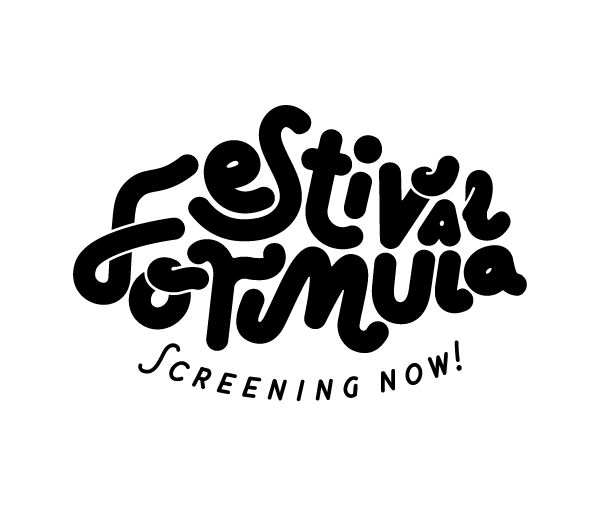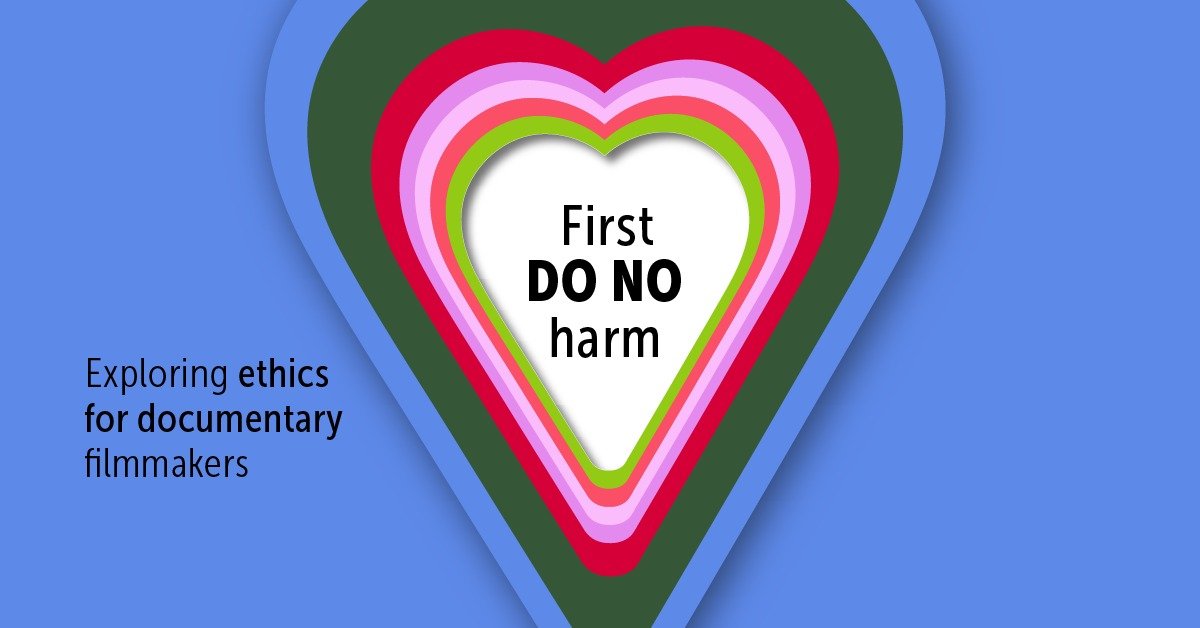Reflecting on the principles of perspective with Nani Sahra Walker
The first news story with a photograph was printed by a French newspaper L’Illustration on July 1st 1848. This photograph shows the barricades on Rue Saint-Maur in Paris. These street barricades were part of the worker’s strike known as the June’s Day Uprising, a revolt of worker’s rights in France. A momentous piece of political art captured in real-time.
Written and interviewed by Kate Stocker-Wright
175 years later we are in an era of observational privilege on a grandiose scale. In the documenting world much has changed technologically and morally.
Speaking to Nani Walker - curator of L.A. Times Short Docs and a filmmaker - I wanted to understand her interpretation of the truth…
“I do believe being inclusive of the communities that we tell stories about is a really vital aspect. That's one way I look at truth in documentary filmmaking.”
How much responsibility should the audience put on a documentary filmmaker?
“The filmmaker’s perspective and nuance are relevant. As an example, the documentary feature Writing with Fire faced quite a bit of backlash for misrepresenting the female journalists who had led a movement in the villages of India. For me, that's a huge question: whose lens is that story being told from? Why are stories about Dalit communities primarily being told by dominant caste filmmakers?”
The storyteller perspective is a very accessible position due to the significant growth in tech. With cameras on phones and content-sharing apps, we’re able to share stories from multiple perspectives. It's great but I wonder if this unfettered access could be problematic. I'm curious to hear your thoughts on this growth of technology.
“In terms of social media, I think it's a great marketing tool and a lot of filmmakers benefit from the network to build audience and engagement. The accessibility and reach of YouTube is incredible.”
Do you think there is potentially something troubling everyone becoming a documentarian-type?
“Overall it democratises filmmaking. Making documentaries used to be controlled and accessible to so few. I feel the filmmaker’s voice in the past has always been from this dominant lens and now we are in a more inclusive era. It's not only the tools to make films but also the distribution platform. I do think that it's a positive, but we also have to think about what the streaming giants are offering in return to filmmakers. That’s the big battle at the moment with the WGA strike.”
I like that expression, democratising filmmaking, that's a good way of phrasing it.
I want to ask some questions about the L.A. Times Short Docs - How did it come about and were there any challenges?
“At that time it was just my colleague Leslie Lindsey and I. I did a lot of the curatorial work and the creative producing working with filmmakers to help reshape their cuts. It was a really incredible experience to launch a platform especially because there isn’t such a platform on the West Coast. So filmmakers tend to look towards the East Coast or even to the UK in order to find a home for their films.”
I loved watching the programme at last year’s Indy Shorts Film Festival. I liked the variety of human documentaries and also very hard-hitting documentaries.
“I'm so glad to hear you love the selections. My vision for the slate is all about diversity and representing voices and people from communities that have been underrepresented.”
The ones that stood out to me were Victor and Isolina. A very human story-based documentary about the filmmaker’s loving relationship with his grandparents who emigrated to the US from Puerto Rico. It’s arguably a comedy documentary. Then you have this very powerful documentary film, Breach of Trust by Mishal Mahmud, a social issue-driven doc exploring the scandal of predatory doctors at universities. A film that proactively listens to the victims and the people who worked to expose them. How do you manage that type of programming?
“Yes definitely and I agree completely about Victor and Isolina. I laughed so much watching that film and I watched the filmmaker’s more recent work, Chilly & Milly, which is about his parents and it's also deeply personal. I felt it was so inherent in the lives of immigrants in the US. It just spoke to me in a very playful way. Breach of Trust is a hard-hitting investigative piece with a completely different style. They both honoured non-fiction storytelling.”
Do you feel restricted from having a West Coast remit?
“The West Coast, especially California, is such a diverse place. I don’t feel limited because the documentaries don't need to only be set here.”
A frequent conversation I’ve had with filmmakers is the difference between a human spirit documentary and a journalistic documentary and why some film festivals, especially doc-focused festivals, usually have a preference for one or the other.
“I think there are many great personal documentaries. They are kind of a macrocosm of the world. Being from a singular perspective I don't think lesser of them, I think it's just stylistically very different and sometimes it's easier to connect with them on an emotional level. I love personal documentaries when they're done well.”
I know you are not allowed to have favourites from the L.A. Times Short Doc programme but a personal favourite of mine is After Skid Row by Lindsey Hagen. Barbie Carter aka Gangster Granny, as she refers to herself, is such an easy protagonist to love. Barbie is a vulnerable lady rebuilding her life and unapologetically embracing her past. Do you think you have to be in a particular mindset to film these situations? What advice can you share to mentally and psychologically prepare yourself as a filmmaker?
“There's a lot of care that goes into making documentaries and not just for our participants but also for ourselves as filmmakers. I've certainly had that experience making Forced, a short film about survivors of Boko Haram in Nigeria. And for six months to a year, I was making this film. It was very, very tough emotionally to be absorbing their trauma and processing all of that. I think self-care is critical and every documentary filmmaker should seek resources for every project that they do that involves trauma, conflict and any kind of mental health issues.”
Docuseries are very popular at the moment, especially in the crime genre. However, some have come under fire due to the high demand leaving little time and effort for research. I'm curious to hear your thoughts on this.
“If you want to tell accurate true crime stories then research really needs to be prioritised. Put enough resources for that in your budget that's the ethical thing to do with any documentary content in general.”
There’s a fine line between journalism and documentary. What would you say are the factoring differences?
“I think that in journalism there's this foundation of objectivity, which is something in question, who's objectivity are we talking about? Reporting the news is about acknowledging the different perspectives and giving everybody a chance to weigh in on the discussion. I think in a documentary that is not the requisite, and in journalism it has been. Although it has been challenged since the racial reckoning of 2020.” Walker adds “documentary is about POV (Point of view) and an understanding of what that POV is. Then understand the participant or subject and build your story around that particular POV. So in a way, there's no absolute truth.”
Speaking of mentors - do you have any documentary filmmaking heroes?
“I've always admired filmmakers like Werner Herzog, Agnes Varda, Ava Duvernay and Mira Nair who tread the line between fiction and non-fiction filmmaking.”
Any recent doc filmmakers you think we should keep an eye on?
“One filmmaker is Sterling Hampton. His most recent film Merman, which premiered at Tribeca, was our first film of the second season. I admire Sterling's enthusiasm and experimental approach.”
Can you reveal what we can expect from Shorts Docs’ second edition?
“This year we have joined the Opinion section at the L.A. Times and have expanded as a team. In terms of programming, we have some strong films coming our way. Another new aspect is we’ve partnered with Canon. So each filmmaker selected will be given rental equipment for their next film by Canon.”
Very exciting news! Sounds like a very supportive system. What would you say are your three main tips for documentary filmmaking? It can be anything.
“Define your intentions. Stay honest. Keep grounded in your humanity. I think the truth is really about staying close to humanity, which is the essence of any particular story.”
Those are very fair tips. Before I let you go are you allowed to share anything else you are working on at the moment?
“Of course, I recently finished my first fiction feature film Shakti set in Nepal. It's about a mother and daughter fighting for justice in the aftermath of abuse and it's centred around the 35 days of the statute of limitations in Nepal in 2014.”
That’s great to hear. Thank you so much for taking the time to chat with me and sharing your professional insight with our readers.
“Thank you Kate, it's been my pleasure.”
I highly recommend viewing the inspiring L.A. Times Short Docs programme. If you are a filmmaker with a short documentary with a West Coast perspective - Nani and the team would love to hear from you.




